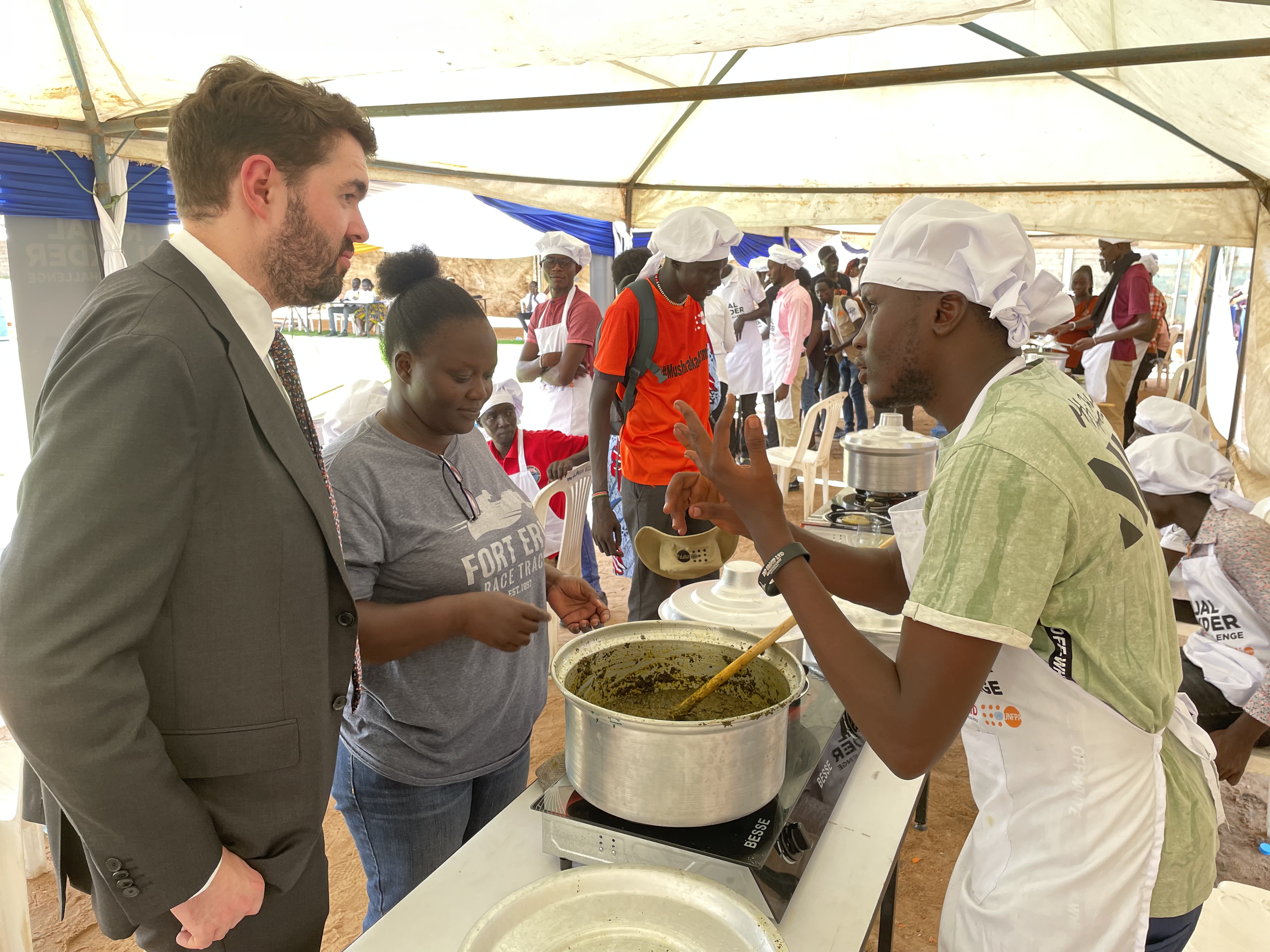 While men and boys have the responsibility as decision makers for their families and communities, women and girls have on the other hand been relegated to the kitchen and domestic chores. Although the roles women play in running homes have significantly made everything else possible for their families, they have, however, been deprived of meaningful leadership and socio-economic activities.
While men and boys have the responsibility as decision makers for their families and communities, women and girls have on the other hand been relegated to the kitchen and domestic chores. Although the roles women play in running homes have significantly made everything else possible for their families, they have, however, been deprived of meaningful leadership and socio-economic activities.
But a group of young South Sudanese men have now embarked on a campaign to change this narrative—by challenging men to start picking up, beginning with the simplest task: cooking. This, they hope would reflect positively on the importance of including men in tasks normally undertaken by women.
On a sunny Friday in Juba, a group of 30 young men assemble under a tent, all wearing chef aprons and caps ready to put their cooking skills to the test.
With music glaring and gas cookers glazing, the young men begin sorting their dishes and ingredients—to the amusement of a predominantly young audience. They are participating in a men-led cooking challenge dubbed Rujal Bi Akder, translating to “Men Can”.
Among them is comedian Wokil Jesh Commando, real name Kuech Deng Atem, who is cooking Kombo Lahm, a local delicacy.
For comedian Wokil, it is not just challenging men to cook. It is about challenging men to share responsibilities with women.
“Cooking is not for women alone, men can also cook,” he says, adding: “Men can take care of children; men can also take care of the house chores that we have neglected for women to do.”
The Rujal Bi Akder Cooking Challenge—the first of its kind in Juba, organized by the National Ministry of Gender, Child and Social Welfare in partnership with Men4Women, a local partner with support from the United Nations Population Fund (UNFPA), presented an opportunity for the young audience to discuss gender roles, their impacts on women and girls and to transform social norms for positive change.
“For us to have gender equality, some of these genders assigned roles which are used against women and girls can be used positively to say we are equal in this, and everyone can do it,” says Hon. Aya Benjamin Warille, the Minister of Gender, Child ad Social Welfare.
The UNFPA Country Representative, Dr. Ademola Olajide believes the participants have demonstrated that “those shared barriers that have hindered women from attaining their full potential can be broken and men can create an environment where women can contribute to socio-economic development.”
Together with other development partners, Norway is funding UNFPA’s Country Programme in its efforts to ensure gender equality and empower young people to access sexual and reproductive health services.